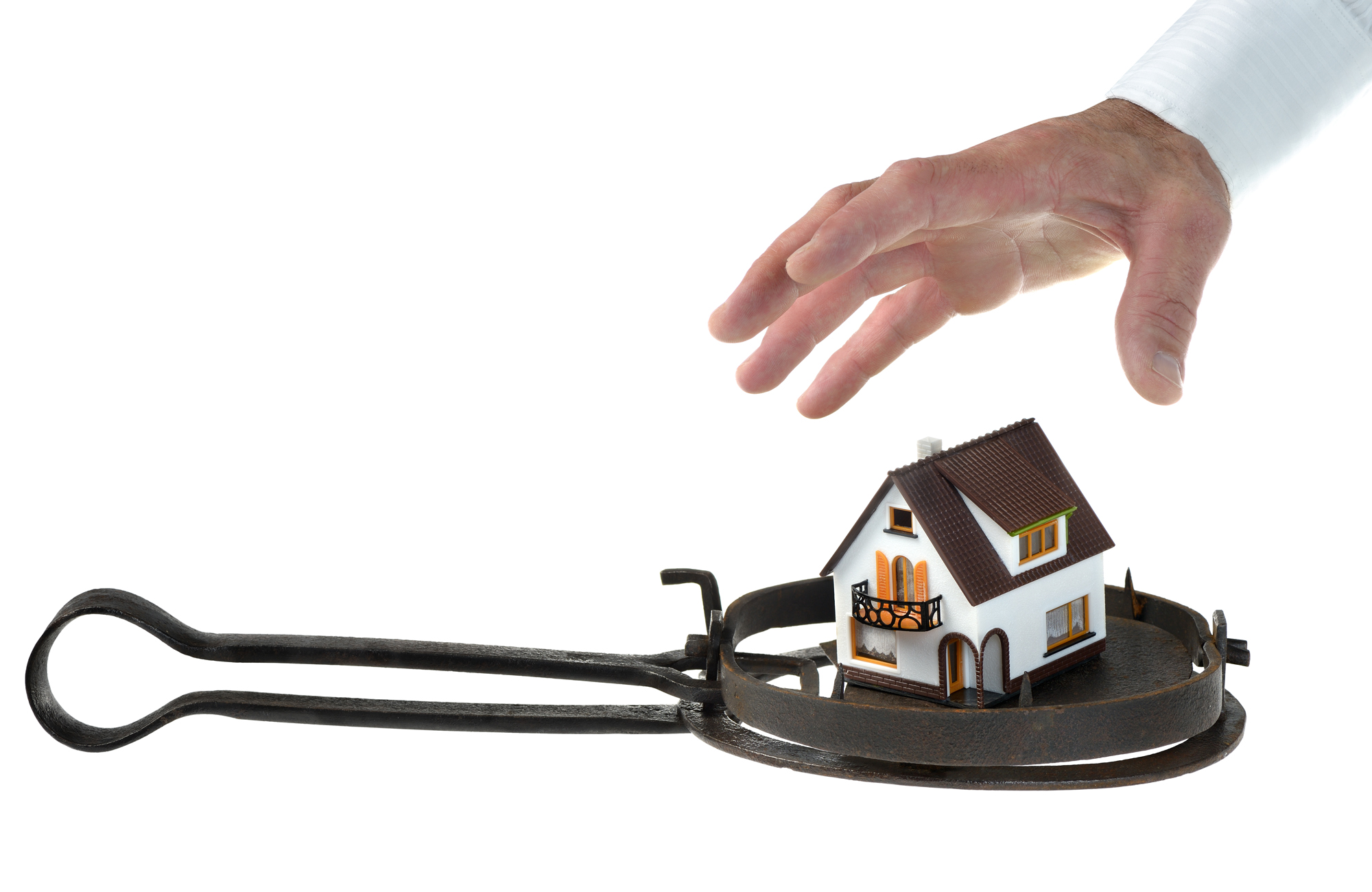When you’re the beneficiary, or inheritor, of a property, you aren’t only dealing with the inherited assets themselves—you’ll also have to deal with the finances and paperwork when inheriting a house.
1. You’re responsible for mortgage payments.
Mortgage loan
If the house isn’t paid off when you inherit it, you’ll have to take over the mortgage payments. Get in touch with the lender to find out when payments are due and how to make them. It’s important to do this as soon as possible after inheriting so that you can avoid getting behind on payments and having to pay late fees.
Often, a mortgage will include a due-on-sale or due-on-transfer clause. This means that when the house changes owners, the loan has to be repaid in full. If this is the case with your inherited house, check with a lawyer—you might be legally protected from having to repay the loan right away.
“Underwater” mortgage
If the mortgage is “underwater,” meaning that the house is worth less than what you owe, there are a few things you can do. First, get an appraisal of the house to see if the value is correct—it could be worth more than it was when it was last appraised.
If it’s still underwater, you can ask the bank for a short sale of the house or arrange to give the house back to them in exchange for forgiveness of the mortgage balance. With a short sale, you sell the house for less than you owe on the mortgage, and the lender will either forgive the rest or ask you to pay it. You usually need to get permission from the lender for a short sale and work out the details beforehand. When you give the inherited house back to the lender, they take the house, and you’re off the hook for payments.
Reverse mortgage
The person who left you the house may also have taken out a reverse mortgage. This is when a senior homeowner who has equity in the house takes out a loan against that equity. For example, if the homeowner has paid off some of their home, they can usually borrow around 40%–60% of that amount back to pay for other expenses.
There are no monthly payments with a reverse mortgage, but the loan needs to be repaid if the homeowner dies, moves out, or sells the house, so you’ll be responsible for paying the loan back when you inherit.
Selling the inherited property can often net you enough money to pay it off. You can also refinance the property if you don’t plan to sell it, which means you’ll take out a new loan in your name with better terms. If the homeowner bought credit insurance, though, you may be protected from having to pay off the debt.
2. You probably need to pay inherited house taxes.
-
Property tax: Property tax is also an inherited tax that comes along with the house. It’s usually decided by local governments like the city or county. If back taxes are owed, they’ll need to be paid right away. In all states, the local government can sell the house to get the taxes that are owed if they aren’t paid, so it’s important to find out how much property tax is owed and how to pay it.
-
Inheritance tax: There is no federal inheritance tax, but at the state level, you may have to pay an inheritance tax. When you sell the property, you only have to pay inheritance tax if it’s located in one of 6 states—Maryland, Nebraska, Kentucky, New Jersey, Pennsylvania, and Iowa. Iowa’s inheritance tax is being phased out and will be completely gone in 2025. If you live in one of the above states but the property is in one of the other 44 states, you don’t have to pay inheritance tax.
Inheritance tax rates vary depending on the inheritor’s relationship to the deceased person. For example, even in the states that have an inheritance tax, spouses don’t have to pay it. Children and grandchildren are only taxed if the inherited property is in Pennsylvania or Nebraska.
- Capital gains tax: A capital gains tax on inherited property is only charged on the value a property gains after you inherit (the “capital gains”). So, if the property is worth $250,000 when you inherit it, but $300,000 when you sell it, you will only owe taxes on that difference of $50,000. Keep in mind that the original purchase price of the house doesn’t matter, only what it’s worth when you inherit it. If the owner paid $100,000 for it, but it’s valued at $250,000 when you inherit, the stepped-up number is what you’ll be working from.
You can find out the value of the house by having it appraised after you inherit. Capital gains tax on inherited property is paid only when you sell the house, not when you inherit it.
Tax law when inheriting a house can be complicated and hard to navigate, so if you have any questions, it’s recommended to talk to a lawyer or financial advisor about what options may be best for your situation.
3. You need to transfer the homeowners insurance to your name.
When you inherit, the previous owner’s insurance does not automatically transfer to you, so you’ll need to start your own policy or have the existing one switched to your name. You might need some documentation like a death certificate in order to have the policy transferred to you.
If you aren’t living in the inherited house and it’s sitting vacant, the insurer may want you to take out something called a vacant property policy. This type of policy is preferred by insurers for homes that are uninhabited for more than a month or two because of the risk involved. For example, if a water pipe bursts while no one is there to notice, the water damage caused could be extensive and require the insurer to pay out a lot more than if the homeowner was there to see it immediately. A regular homeowners insurance policy might not pay for things like vandalism, burst pipes, or theft if the house has been vacant for more than 30 or 60 days.

4. You have to transfer and pay for utilities and services.
Keeping up with utility payments is an important part of inheriting a house. Even when you aren’t living there, it can be important to make sure that the utilities aren’t shut off.
- Electricity: If you’re expecting temperatures to be below freezing, you’ll want to keep the heating on so that water doesn’t freeze in the pipes. Keeping the lights on is important as well if you plan to spend any time at the house. You also need electricity to run appliances like the refrigerator.
- Water: The water bill should be paid so that you can allow a small amount to run from a few faucets when the temperature dips, to keep water moving through the pipes instead of freezing. You may also need water for cleaning if you plan to be at the house on a regular basis, working to get it ready to sell or to move in.
- Trash: Unless you plan to take any garbage to the dump yourself, keeping trash service going will also be helpful.
- Mail: When someone dies, all of their mail will keep coming until you have it forwarded to your own house. Only packages delivered through the USPS are forwarded, though, so you’ll need to separately cancel or forward any packages sent through other services like UPS, FedEx, or Amazon—especially anything that’s set up for auto-shipments.
5. You likely need to go through probate, especially if there are multiple heirs.
You’ll probably need to go through probate, even if there’s a will.
Probate is the legal process where the probate court figures out who the inheritors are and who should be the executor—the person who carries out the wishes stated in the will. This person is usually named in the will. If there isn't a will, an administrator is appointed instead, with similar duties as an executor.
When multiple people inherit a property, things can get even more complicated. If the heirs don’t all agree on what to do with the property—for example, if one wants to sell the inherited house while another doesn’t—and can’t reach an agreement on their own, the executor or administrator could be responsible for deciding what to do. Laws vary by state, so if there’s any conflict about what to do with an inherited property, you can ask a real estate attorney for help with probate.
6. Overdue maintenance may need to be taken care of.
One of the most common challenges when inheriting a house is outstanding maintenance. It’s typical that issues will build up over time with any house. If you inherit a house with a lot of problems, you can decide whether or not to fix them to get the house livable, up to code, or in top shape to sell.
Overdue maintenance includes things like peeling exterior paint, plumbing issues, outdated electrical components, and foundation damage. Some of these problems can be easier and cheaper to fix, while others may require more time and effort.
7. There are several different ways to sell an inherited house.
-
Real estate agent: You can fix up the house and sell it on the traditional real estate market. If you choose to sell an inherited house with an agent, you’ll likely get a better price, though you’ll need to address any maintenance issues and make cosmetic updates, stage and show your house, and negotiate with buyers.
-
FSBO (for sale by owner): Selling FSBO is a similar process, but without the help of a real estate agent. You’ll be responsible for everything, but you also won’t have to pay any commissions.
-
iBuyer: An iBuyer can give you an offer for the house sight-unseen, though a representative will typically have to see it before making a final offer. Selling an inherited house through this method can be a good choice if you prefer a more hands-off approach, focusing less on personal interaction and more on efficiency. Also, they will usually buy the house “as is,” without repairs or renovations.
-
Off-market house buyer: If you’d like to sell your inherited house quickly and not deal with things like overdue maintenance, you can sell the house “as is” to an off-market house buyer. These buyers will usually not require you to fix anything in the house before they buy it. This can be a great option if the house isn’t in good shape, and you don’t want to spend the time or effort needed to repair it. You also typically won’t need to pay commissions. The trade-off here is that you’ll likely get less money than if you did repairs and went through the process of selling on the traditional market.
Selling an inherited property with We Buy Ugly Houses®
Selling an inherited house can be easier than you might expect. We Buy Ugly Houses is America's trusted home buyer** with a process that’s simple and quick. Just make an appointment and we’ll come to your house for an in-person consultation. Afterward, we can give you a convenient offer and will do our best to work with your schedule when closing on the sale. No need to do repairs, renovations, or cleaning. You can even leave any unwanted items behind, and we’ll take care of them. We charge no commissions or hidden fees, and we pay typical closing costs†. Get in touch if you’re interested in selling your inherited house to us “as is.”
This blog is for informational purposes only and should not be considered legal advice.















